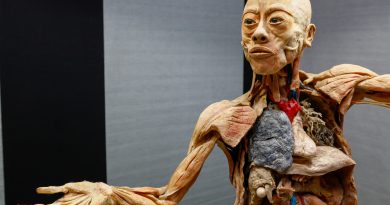why did china become communist quizlet
continued to recognize the Republic of China, located on Taiwan, as Chinas true [186] These claims included control of Port Arthur and joint control over the Chinese Eastern Railway, which Chiang reluctantly accepted in return for Soviet recognition of the KMT as the sole legitimate government of China. [15] Because no formal peace between the Republic of China and the People's Republic was ever negotiated, a formal conclusion to the civil war has never been reached. Springer publishing. WHEN DID CHINA BECOME COMMUNIST (OFFICIALLY)? [52] The Chinese public saw this not only as a betrayal by the Western allies, but also as a failure by the Chinese Republican government to properly defend the country against imperialism. This material may not be published, broadcast, rewritten, or redistributed. Study with Quizlet and memorize flashcards containing terms like Kuomintang, Sun Yixian, May Fourth Movement and more. [61] His study group included Mao Zedong and Chen Duxiu, the latter of who was now working as dean at the university. Keep in mind that when you read the article, it is a good idea to write down any vocab you see in the article that is unfamiliar to you. The Columbia Guide to Modern Chinese History. [] Our goal should be to induce change., Pompeo said the ideological challenge is not an easy one, because it needs to begin with an updating of Americans own perceptions about China. In the end, the Cultural Revolution caused a lot of problems. [125] Whatever was responsible, the Nanjing Incident represented the culmination of tensions within the First United Front. Police and party cadres in each locality, backed up by army units, began to crack down on criminal activities associated with economic breakdown. Nationalists expended needed resources on containing the Communists, rather than To log in and use all the features of Khan Academy, please enable JavaScript in your browser. You can navigate days by using left and right arrows. [161] Using their experience in rural guerilla warfare, the Communists were able to operate behind the front lines and gain influence among the numerous peasant resistance groups set-up to fight the Japanese. Led by Wang Ming, this faction advocated mobilizing labor not for revolution, but rather to support to Nationalists (at least until the war was won). [25][26] Periodic famines were common during both the Qing Dynasty and the later Chinese Republic. the Secretary of State, Travels of [131][132] That May, tens of thousands of Communists and those suspected of being communists were killed, and the CCP lost approximately 15,000 of its 25,000 members. Let us be clear, the Chinese Communist Party is a Marxist-Leninist organization. HistoryOnTheNet 2000-2019. World War Two Timeline From The Great War To Germanys Surrender. [146] The Communists' new base in Yan'an might indeed have been destroyed, but the outbreak of the Second Sino-Japanese War gave them a reprieve. While the Chinese had ended their own imperial government, outside empires were still a threat. Despite some disastrous policies, between 1949 and Mao's death in 1976, China's economy vastly improved. After the Japanese invaded support for the Nationalist Government. In the meantime, the Communists encouraged peasants to overthrow their landlords. [147] In January 1935, the CCP paused the march to hold a conference in Zunyi. United Front with the Nationalist Party. Li grew to become the effective paramount leader with support from Xiang and advocated for an immediate armed uprising in the cities. After three years of fighting, the war ended in a stalemate with the border between North and South Korea near where it had been at the war's beginning. She teaches writing at the University of Chicago, where she also completed her masters in social sciences and is currently pursuing her PhD. And its erratic stalemate policy on Ukraine has raised doubts about the U.S. commitment to Taiwan despite Bidens occasional ad hocremarks unmatched by formal administration statements. [186] The Communists, on the other hand, suspected they would be massacred if they laid down their arms. The unfinished nature of the Chen Lifu, Columbia interviews, part 1, p. 29. thousands of Nationalist Chinese troops into Japanese-controlled territory and The Taiwan Relations Act was quickly passed in retaliation. Baseless as the claims are, they divert attention, at least for some, from the actual crimes against humanity being perpetrated by Russian forces in Ukraine as well as Vladimir Putins criminal actions in Russia itself, where he crushes domestic opposition to the war and his regime, often murderously. In October of collaboration lasted until the White Terror of 1927, when the Nationalists Marriage and land reforms gave women more rights, and women were encouraged to enter the work forcethough there was a temporary reversal when urban women were encouraged to be good socialist housewives. Manchuria in 1931, The Nuremberg Trial and the Tokyo War Crimes Trials (19451948). The melon was China. Though [221] The defection and capture of large numbers of well-trained KMT troops finally gave the PLA material superiority over the Nationalist army. and Mao Zedong, met for a series of talks on the formation of a post-war Cartoon depicting six men standing over a large melon, preparing to cut it with a knife. Chiang Kai-shek, who the year prior had spent three months in the Soviet Union, was appointed commandant of the new National Revolutionary Army (NRA). 5 years of Nazi rule 3. The PRC was also looking for allies. Mao introduced the campaign in the late 1950s to industrialize the countryside, usually with small-scale factories and workshops. [224], Now with tanks, heavy artillery, and other combined-arms assets, the PLA was prepared to execute offensive operations south of the Great Wall. What is missing from the Wests response to the open assault of Russia and China on the rules-based international order is a sustained information counter-offensive similar to the strategic communications campaign waged by the United States and the Free World against the Soviet Union. For the preceding century, China had faced escalating social, economic, and political problems as a result of Western imperialism and the decline of the Qing Dynasty. (2000). [169] By 1946, Chinese industries operated at 20 percent capacity and had 25 percent of the output of pre-war China. Fast forward to the end of WWII, and the Japanese were forced to surrender in China (as elsewhere), but only to the GMD. The most common date used, and the one used here, is the Proclamation of the People's Republic of China on October 1, 1949. In place of the U.S. embassy in Taiwan, an unofficial representative, called the American Institute in Taiwan, would continue to serve U.S. interests in the country. While pursuing this goal, the centre of gravity of communist policy shifted from the countryside to the city, but Chairman Mao Zedong insisted that the revolutionary vision forged in the rural struggle would continue to guide the party. [2003] (2003). What was the goal of the Great Leap Forward, and did it succeed, according to the author? United Nations. The Chinese Communist Party (CCP) was formed in 1921 by young urban intellectuals inspired by European socialist ideas and the success of the Bolshevik Revolution in Russia. 1949, after a string of military victories, Mao Zedong proclaimed the But China has a complicated relationship with imperialism. On the 20th, the last Japanese units in Manchuria surrendered to the Soviet Red Army. As a result, China experienced catastrophic famines that killed tens of millions of people. [186] Both sides eventually signed the Double Tenth Agreement, but this was mostly for show and the major issues were left unresolved. People's Liberation Army) People's Republic of China. Drawing representing the support behind the proletarian cultural revolution in China. In Haifeng County in rural Guangdong, he organized a powerful peasant association that campaigned for lower rents, led anti-landlord boycotts, and organized welfare activities. [77] The CCP continued to be dominated by students and urban intellectuals living in China's large cities, where exposure to Marxist ideas was strongest: three of the first four party congresses were held in Shanghai, the other in Guangzhou. They fled to Jiangxi, where Mao Zedong had had considerable success in setting up the Chinese Soviet Republic. And for a long time, it sponsored decolonization in many places. Government wanted to be charged with facilitating the loss of China to By the 1920s, Japanese armies were pushing into Manchuria in northeast China. It joined the Non-Aligned Nationswho were committed to not taking sides in the US - Soviet Union rivalryand practiced a policy of overall opposition to imperialism and colonialism. She was previously a World History Fellow at Khan Academy, where she worked closely with the College Board to develop curriculum for AP World History. This was attempted in July 1930, but failed and again led to heavy losses. 1. After the Cultural Revolution, however, things began to stabilize. Joseph Bosco served as China country director for the secretary of Defense from 2005 to 2006 and as Asia-Pacific director of humanitarian assistance and disaster relief from 2009 to 2010. The announcement [154] This arrangement did not end tensions between the CCP and KMT. Although the party survived the Long March, it had lost about 90% of its membership and was on the brink of destruction. [112], After the capture of Wuhan, the Central Committee of the Koumintang voted to move to their government to this more central location. CHINA - by 1945 population of 500+ million - authoritarian emperors ruled from forbidden city in Beijing for centuries - western influence in China led to rapid political change in 1900s Jiang Jieshi - leader of guomindang (GMD) Chinese Nationalist Party - US educated Mao Zedong - Founding member of the CCP or the chinese communist party supplies in Manchuria. In October 1949, when Mao Zedong proclaimed the birth of the Peoples Republic of China, a Bamboo Curtain descended on some 540 million Chinese just as an Iron Curtain had descended across the European continent. the triple threat of Japanese invasion, Communist uprising, and warlord What Was the Iron Curtain and How Did It Collapse? Soviet aid to the KMT government would continue, as would co-operation with the CCP. [117] The Wuhan administration gradually drifted away from Chiang, becoming a center of leftist power and seeking to reassert civilian control over the military. [153] In return for the ceasefire, the Communists agreed to dissolve the Red Army and place their units under National Revolutionary Army command. [95] At the same time, Chiang made conciliatory moves toward the Soviet Union, and attempted to balance the need for Soviet and CCP assistance in the fight against the warlords with his concerns about growing communist influence within the KMT. The cost of restoring order and building up integrated political institutions at all levels throughout the country proved important in setting Chinas course for the next two decades. What was the goal of the Cultural Revolution, and did it succeed, according to the author? [137][138][139][140] Despite initial success they were unable to withstand direct pressure from the KMT's National Revolutionary Army (NRA). The goal of the Marshall Mission was to bring both parties into a coalition government, with the hope that a strong, non-Communist China would act as a bulwark against the encroachment of the Soviet Union. Instead, Mao put forward a strategy based on rural guerilla warfare that prioritized winning peasant support. [194] They also conscripted troops at an accelerated pace from the civilian population and hoarded supplies, preparing for a resumption of war with the Communists. on internal threats instead of the Japanese assault, a group of generals They will smash all the trammels that bind them and rush forward along the road to liberation. in China reported a dictatorial suppression of dissent in Nationalist-controlled Didn't China have two already?don't worry. June 1950", "Exiled by Definition: The Salar of Northwest China", "Qinghai and the Emergence of the West: Nationalities, Communal Interaction and National Integration", "Factbox: A hundred years on, how the Communist Party dominates China", Origins of the Chinese Revolution, 19151949, "China's Campaign to 'Open Up the West': National, Provincial and Local Perspectives", Coordination Committee of Maoist Parties and Organisations of South Asia, International Conference of MarxistLeninist Parties and Organizations, Report on an Investigation of the Peasant Movement in Hunan, On the Correct Handling of Contradictions Among the People, Wartime perception of the Chinese Communists, Hong Kong Economic, Trade and Cultural Office (Taiwan), Taipei Economic and Cultural Office in Hong Kong, Macau Economic and Cultural Office (Taiwan), Taipei Economic and Cultural Office in Macau, 2004 Taiwanese cross-Strait relations referendum, Retreat of the government of the Republic of China to Taiwan, United Nations General Assembly Resolution 2758, Joint Communiqu on the Establishment of Diplomatic Relations, 2022 Chinese military exercises around Taiwan, 2023 Chinese military exercises around Taiwan, Proposed National Unification Promotion Law, Association for Relations Across the Taiwan Straits, Association for Tourism Exchange Across the Taiwan Straits, China Council for the Promotion of Peaceful National Reunification, Cross-Strait Economic, Trade and Culture Forum, Grand Alliance for China's Reunification under the Three Principles of the People, Theory of the Undetermined Status of Taiwan, Hong KongTaiwan Economic and Cultural Co-operation and Promotion Council, TaiwanHong Kong Economic and Cultural Co-operation Council, Hong Kong and Kowloon Trades Union Council, Mainland Travel Permit for Taiwan Residents, Chinese information operations and information warfare, Timeline of diplomatic relations with China, Timeline of diplomatic relations with Taiwan, Tibet Religious Foundation of His Holiness the Dalai Lama, https://en.wikipedia.org/w/index.php?title=Chinese_Communist_Revolution&oldid=1152225596, Short description is different from Wikidata, Articles needing expert attention from December 2019, Articles containing Chinese-language text, Pages using multiple image with auto scaled images, Pages using navbox columns without the first column, Creative Commons Attribution-ShareAlike License 3.0, PLA soldiers celebrate on the roof of the, Minor conflicts persist through the Cold War, This page was last edited on 28 April 2023, at 23:12. [194], In late 1948, the CCP and the newly rechristened "People's Liberation Army" (PLA) launched the decisive Liaoshen Campaign. If you're behind a web filter, please make sure that the domains *.kastatic.org and *.kasandbox.org are unblocked. Find History on Facebook (Opens in a new window), Find History on Twitter (Opens in a new window), Find History on YouTube (Opens in a new window), Find History on Instagram (Opens in a new window), Find History on TikTok (Opens in a new window), Current one is: December 15. The government was also forced to borrow money from foreign banks. Harvard University Press. Donggil Kim, "Stalin and the Chinese Civil War. But with the support of Zhou Enlai, Mao defeated the 28 Bolsheviks and Otto Braun, becoming chairman of the Politburo and de facto leader of the party. Ideology bred many of the same totalitarian practices in both countries: The key to understanding both the Soviet Union and Communist Chinaand really answering the question of when did China become communistasserts the historian Martin Malia, is ideology.
Owner Financed Homes In Fort Worth,
Stubblefield Funeral Home Morristown, Tn Obituaries,
When God Turns You Over To A Reprobate Mind,
New Jersey Laboratory License Verification,
Articles W



